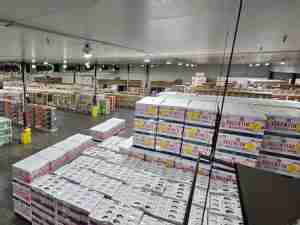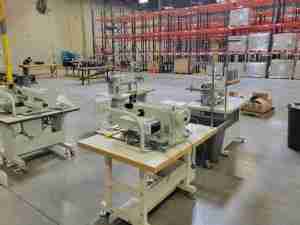The future of last mile logistics has changed dramatically since the onset of the pandemic and operators are becoming faster, smarter and more tech-savvy, according to CartonCloud.
CartonCloud is a rapidly-expanding logistics software company with more than 380 customers across North America, Australia, and the Pacific.
CartonCloud founder and CEO Vincent Fletcher said last mile logistics operators have undergone some major adaptations to overcome challenges brought on by COVID-19.

“The logistics industry has adapted to overcome lockdowns, border closures, and workforce shortages all while meeting a meteoric demand for e-commerce,” Fletcher said,
“The trends that have emerged in last mile since the onset of the pandemic will continue well into the future even as communities across the globe return to a sense of normality.
“The e-commerce boom has significantly impacted last-mile delivery expectations, which have evolved to reflect the needs of communities in lockdown and isolation.
“A huge shift occurred in the number of people who started using e-commerce platforms, and people’s expectations for faster delivery have soared. Consumers expect delivery overnight, placing enormous pressure on last mile operations.
“Larger businesses have managed to implement changes relatively quickly, but that’s not the case for small and medium-sized (SMBs) logistics businesses.
“For SMBs, taking on higher demand with faster turnaround and overcoming rising operating costs are huge hurdles to overcome.
“Not only do customers now want their items faster, but greater expectations have emerged for tracking, reporting, and flexible options in ordering and delivery.”
Fletcher said tracking incoming orders and providing tracking to customers had become paramount for last-mile providers.
“Having instant access to up-to-date orders, transit tracking, and incoming goods means that companies can plan ahead. They can move goods between transport, warehouse, or cross docking services with speed and accuracy,” he said.
“The speed and accuracy this operation requires mean there is a huge surge in need for transparency from 3PLs for the operators, their partners, and ultimately the end consumers.”
Fletcher said the logistics industry had demonstrated that it could rapidly adapt as new challenges and opportunities emerge.
“Last mile logistics companies have become faster, smarter, and more tech-savvy,” he said.
“SMBs have looked to optimize their operations in every way they can so they can punch above their weight and continue to compete against the major players in the industry.
“One of the key ways SMBs can streamline the way they work is through cloud-based management software.
“Cloud-based management software gives businesses eyes across their process and lets them take advantage of automated workflows to boost efficiency and accuracy.
“An effective management system enhances recipient experience, which is one of the most critical factors for last mile logistics operators right now. What's more, it also helps them provide better customer service, with less effort.”
Fletcher said there is enormous potential for innovation in the future of last mile.
“Driverless trucks for routine, short-distance deliveries and small items delivered locally by drone are just some of the tech-savvy ways companies are innovating,” he said.
“While these are interesting and exciting new ideas, the key trend emerging is seeing companies implement software systems to streamline and optimize their business.”
Fletcher said that North American SMBs in the logistics industry were moving away from paper-based systems.
“The demand for cloud-based management systems in North America at the SMB level is growing rapidly because they provide businesses with more capacity to optimize their operation and grow,” he said.
“Management software is becoming essential because it makes a huge difference for companies dealing with increased work and narrowing delivery timeframes.
“As more North American SMBs transition to management software, the supply chain as a whole becomes more efficient, more sustainable and more profitable.”









